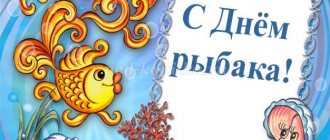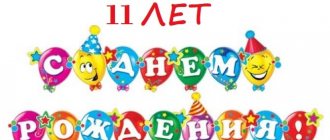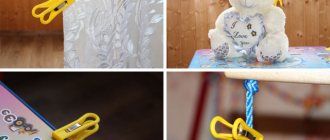Quiz for Prep School
A fun quiz will help you pass the time educationally. It promotes the development of thinking and logic. We have prepared a fun quiz for preschool children that will help parents or managers to easily conduct a cognitive test.
My first day
During the competition, children are asked to draw how they see their first day of school. After the process is completed, we vote for the best work. In the end, in any case, there will be beautiful paintings that can brighten up the walls of the kindergarten group.
Memo
Both individuals and teams can take part. A sheet of paper and a felt-tip pen are prepared for each participant. All participants are focused and ready to listen to the presenter’s long text, for example: Elephant, plate, apple, window, flower, dog, house, shoe, glasses, grille, eye, boa constrictor, car, pants, number five, brick, tree, fish, mug , heart. After the presenter has finished reading the text, he gives the command “start” and records the time. Participants take their markers and draw objects that they remember from the text on their sheets. The winner will be the participant who can remember and draw the most objects in one minute.
Making a schedule
There are numbered items on the desk. Each numbered set of items represents one subject from the school curriculum. For example: Dumbbells and jump rope - (physical education); Sheet music and children's microphone - (singing); Calculator and the root of some plant (the main thing is to make it clear that it is a root) - (mathematics); Several plants (leaf and flower) - (botany); Periodic table and flask - (chemistry); An hourglass and an old scroll (you can make it yourself - burn it a little and rub a piece of paper and write an ancient text on it) - (history); Disk (floppy disk) and flash drive - (computer science); Magnet and light bulb - (physics) and so on. At the “start” command, participants turn to the objects and write a schedule on their sheet of paper, deciphering school subjects in the objects. Whoever completed it first received a prize, such as a diary.
Guess the proverb
Students are divided into pairs. The first participants will have to solve examples, and the second will have to match letters from the alphabet in accordance with the answers to the examples (number-answer = serial number of the letter in the alphabet). For example: √441 (21);50÷2 (25); 2x3 (6); 10+5 (15); 15×2 (30); 12-6 (6); 50-31 (19); 3×1 (3); 6÷1 (6); √400 (20); 10-9 (1); 30÷2 (15); 12÷2 (6); 18+3 (21); 15+10 (25); 8-2 (6); √225 (25); 6+0 (6); 19-4 (15); 3x10 (30); 4+2 (6); 40÷2 (20); 90÷3 (30); 2x7 (14); 1+0 (1). The first participant decides, and the second quickly matches the letters (the 21st letter of the alphabet is y, the 25th is h, and so on). The result is “Learning is light, and ignorance is darkness.” The couple that finishes it faster than the rest will be the winner.
Improvisation
The game goes to elimination, that is, whoever was unable to quickly improvise is eliminated from the game. So, each participant takes out a phantom, and any letter is indicated in it, except e, ь, ы, й, ъ. Each participant, in turn, must compose and pronounce a sentence of at least 4 words, all words must begin with the same letter - with phanta. For example, the letter u. The teacher knows how to organize engaging lessons. The letter a. The acrobat Alexey addressed the audience with applause. As soon as each of the participants said a sentence, there were again forfeits and new sentences. The most persistent participants who can last the longest in the game will receive prizes.
"Catch the bird!"
This is a good old game that our grandparents played. Its rules are:
- participants stand in a circle, holding hands tightly;
- two participants play special roles - “birds” and “cats”. "Bird" is located in - outside;
- The “cat” must break into the circle by any means in order to catch the “bird”;
- the players making up the circle, in turn, must try not to allow the “cat” to break inside the circle;
- the game ends when the “cat” manages to penetrate the circle and touch the “bird”. In this case, the “bird” is considered caught;
- after that, another “cat” and another “bird” are chosen, and the game continues.
Understanding
First and eleventh grades take part. You can choose other classes with a margin. Participants are divided into teams 50/50, that is, one team = half first-graders + half eleventh-graders and a second team of the same composition. First-graders stand opposite eleventh-graders. If first-graders cannot read, the teacher will help them. Each participant receives a note in which a certain profession is written, for example, engineer, flight attendant, teacher, gardener, doctor, veterinarian, and so on. For each team, the leader marks the time at the start. So, as soon as the presenter gives the “start,” the first-grader opens his note, reads (with the help of the teacher) the profession and, without naming it, tries to explain it in his own words. For example, a person knows how to fly, and also treats him to tea or coffee, gives advice, and gives him magazines to read (flight attendant). The first-grader explains, and the eleventh-grader must guess. As soon as he guessed correctly, he opens his note and explains the profession written in his note to the first-grader. That is, the game goes in a zigzag (first-grader-eleventh-grader-first-grader). Once all the participants in the team have explained and guessed all the professions, the presenter stops time and records the result. Then the second team enters the game. And those who spend less time guessing their professions will win. It will be interesting for everyone to observe how differently little students and big children see adult professions, but how harmoniously they work as a team, trying to convey to each other the main thing.
Scenario September 1st at school
The scenario is perfect for the following holiday options:
- Graduation in kindergarten (let's check how the children are ready for school)
- End of the school year, end of the quarter, etc. (let's see what you learned at school)
- Birthday of a child 6-7 years old
Before we get into the script, let's talk about the characters. What characters are appropriate in school on September 1?
Animator for September 1
- Fixies . Of course, these are smart characters and still popular, but don’t you think that they are, to put it mildly, boring ? Even the children exclaim in disappointment and even in an exhausted voice: “ Again fiiiiiiiiiiiiiiiiiiiiiiiiiiiiiiiiiii((: .. ."
- Fairy . Fairy discord! For some reason, most are stubbornly stuck on the image of Fairy Bloom or Fairy Tink. I don’t think a girl in a skirt is appropriate for the first day of school. And there is a fairy from the fairy tale Cinderella. Wise beautiful woman. Kind and reasonable .
- Superhero . I am not a supporter of the invasion of foreign characters. Let's promote our characters! Why is there a superhero here? Who should he save from??? September 1st is not a disaster, it's a holiday !
- Minions . Cute character, funny, funny. BUT speaks an incomprehensible language and serves the villain. What does he have to do with it here, on Knowledge Day?
- Owl. YES , in my script the main character is Wise Aunt Owl . The owl has always been and will remain a symbol of wisdom .
Cartoon cipher
Students are divided into teams of approximately 3-4 participants. For each team, you need to prepare sets of certain items (numbered) in advance. Such sets will be a kind of code for some cartoon, and students will have to guess which one, showing their ingenuity. For example: Onions, tomatoes and cherries (real or plastic; A jar of honey and a balloon - “Winnie the Pooh”; A golden key and the alphabet - “Pinocchio”; A red hat and a basket - “Little Red Riding Hood”; Satin with a cross in a certain place (mark) and a chest - “Treasure Island”, etc. The team of students that can do it faster and correctly decipher all the cartoons will be the winner.
Competitions for Knowledge Day
Knowledge Day is a wonderful holiday of which every person has a pleasant memory. How to make the beginning of the school year special so that it is memorable? A festive event will help you say goodbye to the summer season and get into a positive mood, where children will take part in games, quizzes and competitions. From educational and thematic to fun and active, they will create a magical atmosphere.
What proverbs contain numbers?
This game will challenge children's memory. The winner is the one who names as many proverbs as possible, where at least one number is mentioned. You can also play with teams, giving them a point per proverb.
Tricky arithmetic
This is a game of counting in circles. Perfect for children who are familiar with basic arithmetic. 1. Participants line up in a circle. 2. Name numbers from one to 70 one by one. The main rule is not to name numbers that contain a seven. 3. Together with the “forbidden” numbers they say “by.” 4. The one who makes a mistake is eliminated. They complicate the game for older children by setting them the task of not naming numbers that are divisible by 7. The game may take a long time, but it will bring the children a lot of positive emotions.
Show your figure
Little guests can also cope with the task. Participants are divided into two teams. They make voluntary movements to the music. As soon as the leader names a figure, the teams collectively line up and show it. The one that does it faster wins. For every small victory a point is awarded. At the end, the points are tallied and the winner is announced. They offer children not only competitions aimed at testing (in a playful way) their knowledge of arithmetic and geometry, but also their knowledge of the Russian language.
Make up a word
The leader prepares the ball in advance and lines up the players in front of him. 1. Names the letter, throws the ball to the first participant. 2. The child’s task is to quickly name a word starting with the given letter. 10 seconds are allocated for this. 3. The child, having come up with a word, throws the ball to the leader, who moves on to the next participant. During the game, those participants who do not come up with a word within 10 seconds are eliminated. In alphabetical order You will need two teams, each with an equal number of players. Rules. 1. At the leader’s command, the children line up in alphabetical order (the first letter of the name). 2. The winner is the team that completed the task faster.
What is this word?
Game for two teams. The presenter’s task is to make a wish for an object that is located in a visible place in the room where the event is being held. The following are the clues: • the first letter of the word; • the total number of letters in it. Make a wish for several objects. For the correct quick answer, the team gets a point. Name as many as you can. The kids are divided into two teams. The presenter writes several syllables on the board. Teams take turns calling out more words containing the presented syllables for a while. The presenter keeps count, for each word there is a point. The winning team is chosen after scoring.
Volleyball in words
A good way to have fun and practice using parts of speech. Rules. 1. Children stand in a circle. 2. One child calls a noun, for example “bonfire,” while throwing the ball to another participant. 3. The task of the receiver of the ball is to name the verb that matches the word he heard, in this case it is “burning.” The game continues according to the principle, those children who could not quickly name the corresponding verb leave the circle. The game is also played with first-graders. But for this, the presenter explains to the children in a simple manner that when throwing a ball, they name the object, and when accepting it, they name the action that is done with the object. A good alternative is a game with set phrases. The principle is the same. But instead, the children are given the correct word to match the one named. Together they form a stable phrase. For example: • cell phone (telephone); • Little Red Riding Hood); • Father Frost); • Tsvetik (Gem). To make it easier for children to navigate, the topic for phrases is determined in advance, for example, fairy tale heroes, cartoon characters. During the celebration of Knowledge Day, children are offered games on the theme of the world around them.
Where do I live?
For this purpose it is pre-prepared. 1. If the holiday is held indoors, three circles are drawn on the asphalt for three zones (swamp, lake, forest); 2. If the event is held indoors, use three chairs for each zone, respectively. Children are divided into two teams, each participant takes turns coming forward. The presenter names the animal for the children. The task is to choose the right habitat for him by running into the appropriate circle or stopping next to a chair. Whoever did it faster earns a point.
This is how a molecule moves
This is a popular game that can be played with first graders. In simple words, the presenter will explain to the children that atoms are small components of molecules, and one molecule can consist of a different number of atoms. Rules of the game. 1. Children move freely while the background music plays. 2. The presenter announces a number, for example, “a molecule consists of five atoms.” 3. The task of the children is to break into groups of five people, holding each other’s hands. 4. Those players who failed to form a molecule are eliminated. 5. After the words “Reaction is completed,” the competition continues according to the same algorithm.
Seas, rivers and cities
A game for older children. The children, lining up in a row, listen carefully to the presenter, who points to the players one by one, repeating out loud the counting rhyme: “seas, rivers, cities...”. Having stopped abruptly on one child, the presenter asks him to name the sea, city or river (depending on what word the participant used). I give you 10 seconds to think. The holiday will not be complete without checking your attentiveness. 3, 13, 30 Rules. 1. When the leader says “three,” the children stretch out their arms in front of them. 2. On the command “thirteen”, they move apart. 3. On the command “thirty”, place them on the belt. Each time the presenter voices the numbers faster and faster, moving with the children. The one who incorrectly demonstrates the movement for a certain team is eliminated. They complicate the competition by calling a number and demonstrating the wrong movement. After the attentiveness competition, they devote time to simple active games.
Fun fishing
First, the presenter prepares a “fishing rod”; for this, they take a soft small ball on a rope. Rules. 1. Children line up around the leader. 2. With the words “Catch, fish, big and small,” he begins to spin the ball, directing it at the feet of the players. 3. The children’s task is to jump so that the ball does not touch them. 4. The one who was hit is eliminated. This child falls for the fisherman's bait. If the children are old enough to handle the “fishing rod” skillfully, they change the leader as soon as they get hooked.
Push, pull!
A fun game for two teams with the same number of pairs. The competitors go to the start with their backs to each other. At the same time, they are linked to each other with the help of arms bent at the elbows. The presenter gives a signal, and the children begin to shout “Push, Pull” in unison, forcing the players to move faster to the finish line and back, passing the baton to another pair of participants. The main rule is that one child goes to the finish line facing forward, and on the way back he gives way to his partner as the “leader.” The team whose pairs cover the distance the fastest wins.
Looks like it's starting to rain
A competition in which children will demonstrate their dexterity. A pair of teams with the same number of participants line up at the start. At the finish line, a chair awaits them with an umbrella, a hat and a beach. When the leader gives the command to the participants, they take turns running to a chair, putting on a hat and raincoat, opening an umbrella, standing under it, saying: “It seems like it’s starting to rain.” After which you need to take everything off and pass the baton to your teammate. The winner is the team that completes the task faster in its entirety.
Vegetable garden competition
In the summer, many children probably acted as little helpers for their parents in their summer cottages. If not, then all the children present at the festival have a chance to feel like gardeners. The following are prepared in advance for the competition: • 8 hoops; • two buckets; • several potatoes; • two watering cans. Gardeners are divided into two teams, each with 4 participants. 1. The first one plows the ground (places a hoop on the ground). 2. The second one plants potatoes (places them in the center of the hoop). 3. The third waters the plantings (runs around the hoop). 4. The fourth one harvests (collects potatoes in a bucket). The teams do everything one after another, stopping when all the “garden tools” and “planting material” have been used and the “harvest” has been harvested. The winner is the team that completed the gardening tasks faster. It is important to do everything according to the rules of the game. At the end of the event, it is advisable to reward the children with souvenirs that will remind them of the Day of Knowledge and will become a kind of opening of the school season. Games, competitions, competitions and quizzes prepared for the event are a good way to prepare children for future “working days” at school, an opportunity to collectively tune in to productive work and begin learning in high spirits.
***
Congratulations on the holiday: Happy Knowledge Day
***
Voice congratulations on September 1









